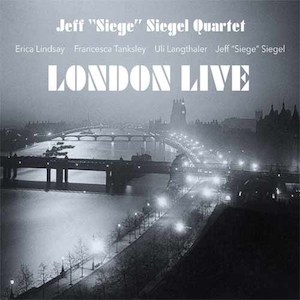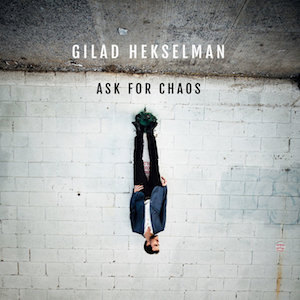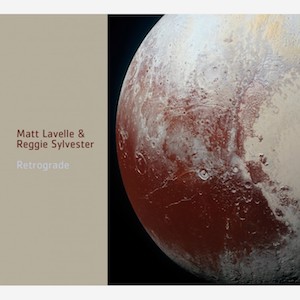Label: Motema, 2018
Personnel – Stefon Harris: vibraphone, marimba; Casey Benjamin: alto and soprano saxophones, vocoder; Felix Peikli: clarinet, bass clarinet; James Francies: piano, keyboards; Mike Moreno: guitar; Jean Baylor: vocals; Regina Carter: violin; Daniel Frankhuizen: cello; Elena Pinderhughes: flute; Joseph Doubleday: marimba; Joshua Crumbly: bass; Tarreon Gully: drums; Pedrito Martinez: percussion.
Prodigious vibraphonist/marimbist/composer Stefon Harris, a mallet master who has recorded as a member of the SF Jazz Collective and The Classical Jazz Quartet, renews the group Blackout for their first recording since 2009, the time when the Grammy-nominated Urbanus caught the jazz world’s attention.
Sonic Creed, a reflection on African American life in our times, comprehends inspiring explorations of tunes by masters such as Bobby Timmons, Horace Silver, Wayne Shorter, Bobby Hutcherson, and Abbey Lincoln, plus a tribute to Michael Jackson and a couple of original compositions that go perfectly well with the rest of the material.
Absorbing funk and Latin rhythms revive Timmons’ “Dat Dere”, here colorfully arranged with smooth vibe/keys-induced textures and Mike Moreno’s catchy guitar. The soloists operate distinctively under the rhythmic fervency put together by keyboardist James Francies, bassist Joshua Crumbly, drummer Tarreon Gully, and guest percussionist Pedrito Martinez.
Harris originals show the importance of the family. The ethereal “Let’s Take a Trip to the Sky” was penned with his wife in mind and treated with rich chordal movements and a steady minimalistic beat supporting the lustrous voice of Jean Baylor, while “Chasin’ Kendall” was written for his two sons, capturing a summertime breezy feel that results from an accessible jazz with cool posture, rhythmic stability, and an esteemed, memorable bass riff anchoring the groove. After Harris, the soloists are Felix Peikli on bass clarinet and Casey Benjamin on alto saxophone.
The latter and the vibraphonist exchange phrases on the lenient “Throw It Away”, a tribute to Abbey Lincoln where the melody flies confidently on the wings of a daring soprano saxophone. You’ll also find electronic sound waves mixing with a syncopated rhythm, subdued guitar with dissonant bends, soaring vibes, and invariably strong bass delineations.
Horace Silver’s “Cape Verdean Blues” is a danceable number with Afro-Latin cross-rhythms and glittering improvisations by Benjamin, who shows proficiency in range, tone, and language; and Harris, who sounds unclouded while articulating fluid melodies with unrestraint conviction.
Whereas Shorter’s “Go” is introduced by a relatively complex guitar ostinato in nine, embracing an earnest post-bop that gradually slants to funk before slowing down in the last minute, Hutcherson’s “Now” has an initial chamber treatment with the presence of violinist Regina Carter, cellist Daniel Frankhuizen, and flutist Elena Pinderhughes. Inducing an adult, contemporary melange of soul, R&B, and jazz, Baylor enhances the piece with an expert vocal arrangement.
To conclude the CD, Harris, unaccompanied, drives Michael Jackson’s ear-pleasing ballad “Gone Too Soon” with meditative introspection.
Filled with gorgeous ideas, Sonic Creed offers a smooth voyage to the world of jazz masters with imaginative, regenerating sounds deep-rooted in the powerful African American culture.
Favorite Tracks:
Grade B+
01 – Dat Dere ► 02 - Chasin’ Kendall ► 04 - Cape Verdean Blues








































